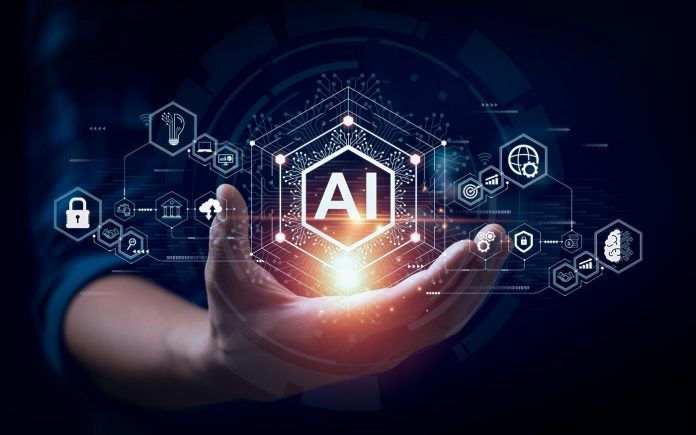Consider unemployment for yourself, your family, your friends and everyone you ever met, with the exception of one computer scientist overseeing the AI
What will happen to most of our jobs when artificial intelligence and robots can do them better and cheaper and with less complication for management? With every day bringing new AI news, and as Nvidia announces plans for constant updates on next-gen AI chips, it’s a conversation that we need to have quickly before we’re threatened with societal collapse.
I have undergrad and graduate degrees from Penn and Columbia in computer science, have worked at and helped found tech companies, know that AI can benefit humanity and don’t think it can or should be stopped. But like others, my tech background frees me a little to unashamedly worry about the downside.
Let’s ignore for our purposes the threat of AI actually trying to take control (the “Terminator” movies’ paradigm), or the more plausible danger of bad actors using AI for nefarious ends (already playing out in deep-fakes and social media manipulations). Even in this best-case scenario, many industries are about to trashed, affecting everyone from those who drive, operate a cash register, and do graphic design or animation to many in the healthcare profession who will be relegated to operating technology. That goes double for lawyers (so there may be a silver lining).
Yes, progress has long been resisted by those affected; the word “sabotage” comes from French workers throwing their “sabot” – a wooden French sandal – into the machines that were replacing their jobs. But never before have so many industries been on the chopping block. Technology is creating AI that can replace white collar workers and robots that can replace blue collar workers at such a pace that retraining may not come close to engineering alternative employment.
All that needs doing will indeed get done – but by a tiny fraction of the population and benefitting primarily the owners of the companies that control AI and robot technology. The others will either starve or will need to be supported somehow. Inevitably, much of the wealth will drain towards those that create and control this technology as labor costs drop dramatically. Outrageous equality and social unrest will follow.
This is where taxation comes in. Given the incredible degree of economic and societal disruption caused by AI and robotics, it seems absurd for these fields to be taxed at the same level and by the same system as hamburger chains or shoe stores.
This could be applied at the source as well, making the use of AI more expensive (so that human capital can be more competitive). For instance, part of the cost of using a self-driving taxi would be a 25% surcharge. Or making AI developers and companies whose workforces are demonstrably reduced by AI face taxes or other charges.
One possible outcomes could be universal pay, detaching work from income, since many of the endeavors that will give humanMis satisfaction, and which even may advance knowledge and human happiness, will not necessarily generate revenue. Imagine most of humanity as artists; some will become new Picassos, but you cannot know who, so you fund them all.
On the other hand, Is dissuasion of boundless AI use even possible? Those who think not might take notice of what is happening in the entertainment industry – a field in which the vast majority are impoverished and a few earn stupendous sums.
Of late, some players have pondered tempting select members of the former group to license the use of their faces and voices – essentially enabling AI and computer-generated imagery to inject them into content without their seeing a single set. Even though this is technically possible, and soon could be extraordinarily sophisticated, there appears to have been a successful backlash in the industry against it. Essentially, to ban it.
Part of the reason the studios are backing down (for now) may be that they sense the audience would not respond well to this. The money comes from the audience, and the audience, after all, is human. So inefficient. But quite effective. It suggests public opinion matters if it can be mobilized, and this might serve as a beacon: Not everything that can be done is something the public wants to have done.
Can taxation come about? It would need a global coalition. Nothing will work if China, for example, pushes ahead. Everyone would need to sign on, and the proceeds of the taxes would need to be distributed fairly, and probably on a per-capita basis. Essentially, it requires the opposite of what happened with the Covid vaccines, which were developed by Western companies and overwhelmingly favored the West in distribution.
The United Nations might facilitate dialogue and consensus-building efforts with the goal being to establish a robust framework for global AI taxation, transcending geopolitical divides. Perhaps an activist regional grouping like the European Union can take the lead, as it has in regulating other areas like privacy and content rights against tech companies.
The idea will have its detractors. A 2021 study by the World Tax Journal already argued that taxes on AI would stifle innovation and deprive the world of great benefits. I believe they are wrong: while it might delay some benefits, forcing companies into subsidizing the impact of their products is no different than what we accept for other “hazardous” sectors.
For example:
- Tobacco Industry: Governments around the world imposed heavy taxes on tobacco products to deter consumption and offset the societal costs associated with smoking, such as healthcare expenses and lost productivity. These taxes are designed to discourage harmful behavior while generating revenue for public health initiatives. Few cared about the interference with the free market.
- Carbon Emissions: In response to climate change concerns, many countries have implemented carbon taxes or cap-and-trade systems to curb greenhouse gas emissions. These measures impose a financial cost on companies that emit carbon dioxide and other pollutants, incentivizing them to reduce their environmental impact and invest in cleaner technologies.
- Alcohol Industry: Similar to the tobacco case, alcohol is subject to excise taxes in many countries to discourage excessive consumption and mitigate the societal costs of alcohol-related harm, including healthcare expenses and public safety issues.
- ning and Extractive Industries: Some countries impose resource extraction taxes or royalties on mining companies to ensure that they contribute to the local economy and environment. These taxes help offset environmental degradation.
While these examples are not directly analogous, they demonstrate the effectiveness of using taxation as a tool to regulate industries and address societal concerns. While a global tax on AI revenues would require unprecedented international cooperation and coordination, it may be worth attempting.
If you are inclined to reject this on principle, consider unemployment for yourself, your family, your friends and everyone you ever met, with the exception of one computer scientist overseeing the AI. You might then get the picture. A deep-fake? Impossible to say.
Talent shortage is reshaping labour markets, opening the door to AI

















